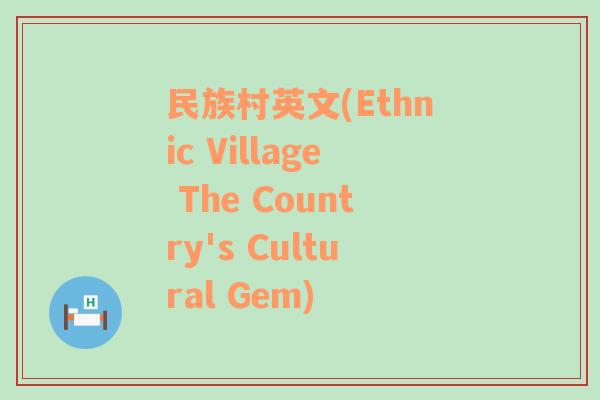同程旅行网;同程旅行网助您畅游天下 精选旅游路线与优质服务一站搞定
同程旅行网是一家致力于为广大用户提供优质旅游服务的平台,帮助用户实现畅游天下的梦想。本文将从六个方面详细探讨同程旅行网的优势与特色...
扫一扫用手机浏览

Ethnic villages, also known as cultural villages, are unique attractions that showcase the rich cultural heritage of a particular ethnic group or community. These villages offer visitors a glimpse into the 申根签旅游签 traditional way of life, customs, rituals, and art forms of the local people. In this article, we will explore the significance of ethnic villages as the country's cultural gems.
One of the primary roles of ethnic villages is to preserve and promote the traditional culture of a community. Through exhibitions, workshops, and cultural performances, visitors can learn about the history, language, beliefs, and practices of the ethnic group. This preservation of traditional culture is crucial in maintaining the identity and heritage of the community for future generations.
Ethnic villages play a vital role in promoting cultural diversity by showcasing the unique customs, traditions, and art forms of different ethnic groups. Visitors have the 一定要旅游 opportunity to immerse themselves in the rich tapestry of cultures, languages, and lifestyles that make up the country's diverse heritage. This exposure to various traditions fosters understanding, respect, and appreciation for different cultures.
Ethnic villages provide economic opportunities for local communities by creating employment through tourism-related activities such as handicrafts, traditional performances, and guided tours. By promoting the products and talents of the community, ethnic villages contribute to the sustainable development of the region and empower local residents to take pride in their cultural heritage.
Many ethnic villages are known for their unique and traditional architecture, which reflects the cultural 出国旅游推荐国家 identity and historical roots of the community. From ancient wooden houses to intricately designed temples, these architectural wonders are preserved in ethnic villages as living testaments to the craftsmanship and aesthetic sensibilities of the past. Visitors can admire the beauty and craftsmanship of these structures while gaining insight into the architectural traditions of the community.
Ethnic villages serve as cultural hubs where visitors can engage in meaningful interactions with local residents, artisans, and performers. Through activities such as traditional cooking classes, dance workshops, and language lessons, visitors can partake in cultural exchange experiences that promote mutual understanding and friendship. These interactions create bridges between different communities and foster a sense of global citizenship and unity.
In conclusion, ethnic villages are invaluable assets that serve as the country's cultural gems by preserving traditional culture, promoting cultural diversity, supporting local communities, preserving traditional architecture, and enhancing cultural exchange. These vibrant and enchanting destinations offer visitors a transformative experience that enlightens, educates, and inspires, making them essential destinations for those seeking a deeper understanding of the rich and diverse cultural tapestry of the country.